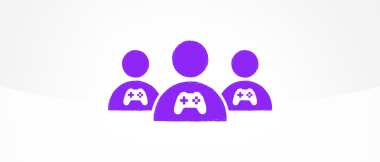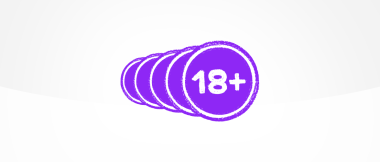What parents need to know about 4chan
Created in 2003, 4chan is an anonymous image board website where users can post images covering anything from Anime and cooking to politics and science.
The site has generated controversy – including through its relation to several violent events – but continues to be popular.
![]()
How does 4chan work?
4chan is made up of a series of different boards, similar to Reddit. Within each board, users post threads of content which are systematically deleted by 4chan’s software after a random amount of time – sometimes as little as a few hours.
The only way to use it is to create a new thread or add posts within existing threads. You can’t add ‘friends’, send a private message to anyone, or ‘like’ or share posts.
4chan encourages expressions of often extreme opinions, only banning content that is explicitly illegal.
The platform is fully anonymous; you don’t need to provide any identifying information about yourself when posting, although you can add your name if you wish. However, the site administrator (and owner, Hiroyuki Nishimura) can access users’ IP addresses and identify them via their device location.
Age restrictions
Although rated 18+, 4chan has no age verification process, nor any real sign-up process. You don’t have to create an account to start viewing or using it.
To access the site, all you have to do is accept 4chan’s terms and conditions (which include stating that you are over 18). After that, anyone can both view and create content.
4chan and 4channel
In 2018, 4chan split into two separate domain names: 4chan and 4channel. These are essentially two parts of the same platform, with the same owner and run in the same ways. The main difference is the type of content hosted on each.
4chan continues to host 18+ content, including violence and pornography, commonly referred to as Not Safe For Work (NSFW).
In comparison, 4channel only hosts “worksafe” content – and also allows advertising. There is also a ‘WorkSafe’ page on 4chan.org.
Listen to Parent Zone's podcast, Tech Shock.
Why is it popular?
For many young people 4chan is seen as a space where they can voice their opinions, interests and humour freely, without worrying about how others will react.
While in theory, that’s a good thing, it can have some deeply negative consequences – particularly in the way the site offers a sense of community and validation for those whose feelings of isolation and disenfranchisement may lead them to more extreme views or behaviour.
What safety settings are there?
While there are no age restrictions on the site itself, you can set up parental controls to prevent your child from being able to access 4chan.
Content is moderated and will be removed if it goes against 4chan’s community guidelines – but these are fairly loose and mostly focus on where certain types of extreme content can be posted, rather than banning it completely. Some boards are even specifically designed to have almost no restrictions on what is, and isn’t, allowed.
Like all users on the site, moderators are anonymous. They have full discretion to ban users and close threads if they feel they are verging into 'spam' territory. Users can appeal a ban unless that ban is permanent.
Users can report content if it goes against 4chan’s community guidelines, by selecting the arrow next to a post and clicking ‘report’. Bear in mind however that upsetting, extreme and adult-appropriate content is not only common on the site, but actively encouraged – and a post won’t be removed unless it is posted in the wrong board or contains actually illegal content.
What are some of the concerns?
Radical politics
The board /pol/ is for political content – and it's worth noting that the majority of political content shared on 4chan is connected to the far right.
Although many join 4chan for its alternative humour or to find others with similar interests, the platform is also a hotspot for radicalisation. Users – especially young users – can be vulnerable to being pushed into radical online spaces. Content can voice sexist, homophobic and white supremacist views.
4chan has also become closely equated with incel (involuntary celibate) culture. Shootings in the US have highlighted this connection, with multiple shooters either referencing posts on 4chan or using it to publish their views.
/b/ board
Bar certain illegal or criminal content, such as child sexual abuse images, 4chan’s /b/ board (or ‘random’ board) has a ‘no rules’ policy, meaning that it allows racist, graphically violent and adult pornographic content.
While some users find the ‘random’ board to be liberating, its content can easily spiral into misogynistic and racist territory – and has reportedly motivated several real-life attacks.
Sign up to our newsletter and get the best of Parent Zone to your inbox.
Organised trolling campaigns
4chan has also been implicated in several organised hate and trolling campaigns, most notably 2014’s GamerGate.
Users coordinated online attacks – including doxxing (the publication of someone’s personal details online), death threats and injury threats – directed at game developer Zoe Quinn, who created the game Depression Quest.
While 4chan is viewed by some as a safe space for controversial views, GamerGate was a clear example of how that sense of community, combined with anonymity, can cause someone real, offline harm.
Related sites: 2chan, 8chan and 16chan
The ‘chans’ began with the Japanese image-board site 2chan in 1999, which hosted predominantly anime and Japanese far-right ideology.
In 2003, 4chan was created as a Western alternative to 2chan, but with more of a focus on memes and Western political views.
But as 4chan introduced marginally stricter rules (for example, banning doxxing and other explicitly illegal content), disappointed former users decided to create their own ‘chan’ sites allowing more extreme content – and fewer restrictions.
The most popular of these is 8chan, also known as 8kun. 8chan actively promotes QAnon conspiracy content and hosted manifestos, from the Christchurch mosque and El Paso shooters.
8chan contains significantly more harmful, criminal content than 4chan – such as clear exhortations to violence and even support for genocide – and is also much harder to find. 8chan has been removed from Google search and frequently has to change the nature of its domain names.
As 8chan has become increasingly more difficult to access, there have been rumours about a future site called 16chan, to make extreme content more accessible; but as of now, it remains a rumour.
Spot something that doesn't look quite right? You can email librarian@parentzone.org.uk to submit comments and feedback.
This article was last updated on 02/10/23.




 Previous Article
Previous Article 